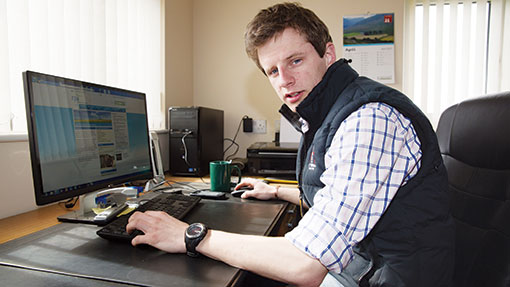Farmer Focus: Cleared ditches thoroughly tested

I’ve spent the past couple of weeks in Devon on the Worshipful Company of Farmers Challenge of Rural Leadership course (run by Duchy College), and it was everything I was told it would be, and more. Just to summarise, it was brilliant.
With a mix of people from the UK, Poland, Australia, Romania and the Isle of Man, there was no shortage of knowledge and experience among the course participants – backgrounds ranged from smaller, family businesses to managers of large farm businesses. Thanks to Richard Soffe and his team for putting together such a great course.
It won’t be long before the first application of nitrogen will be going on to the oilseed rape to kick it into gear, although it is all a reasonable size and, so far, pigeons have been little trouble. The early-drilled wheat is looking good, and the mild weather, although wet, has meant that the early December drilled wheat has established fairly well, especially compared with wheat drilled at a similar time last year.
Around here we have been lucky in terms of flooding and storms, with no major incidents other than a couple of trees down and some internet issues due to the wire being worn through where it passes through some tree branches. What the high rainfall has showed, again, is the importance of keeping ditches clear. There are many large puddles in fields across the country that could probably be reduced if there was an escape route for the water. Having done some ditching here just before the worst of the rain came, it’s quite satisfying seeing just how much water actually passes down some of them when they are clear.
I’ve taken on another new challenge this week in the form of a collie pup. The initial challenge will be to stop it destroying everything, but I’m looking forward to getting out and training it properly when it’s old enough – although I’m not sure that the terrier is convinced of the idea.
Matt Redman operates an agricultural contracting business and helps out on the family farm at Lower Gravenhurst, Bedfordshire. The 210ha farm grows mainly wheat, oilseed rape and beans.
More from Matt Redman
More from our other arable farmer focus writers
